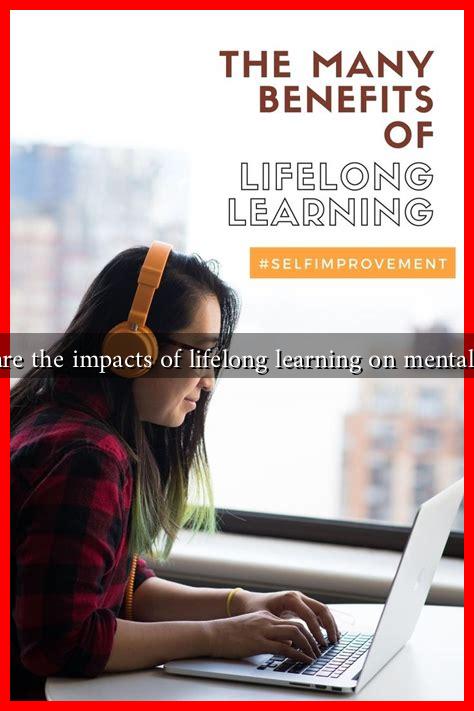-
Table of Contents
The Impacts of Lifelong Learning on Mental Health
Lifelong learning, the ongoing, voluntary, and self-motivated pursuit of knowledge for personal or professional development, has gained significant attention in recent years. Beyond its obvious benefits in career advancement and skill enhancement, lifelong learning plays a crucial role in promoting mental health. This article explores the various impacts of lifelong learning on mental well-being, supported by research, statistics, and real-life examples.
Understanding Lifelong Learning
Lifelong learning encompasses a wide range of activities, including formal education, online courses, workshops, and self-directed study. It is not limited to traditional academic settings but extends to informal learning experiences such as reading, traveling, and engaging in hobbies. The concept emphasizes that learning is a continuous process that can occur at any stage of life.
The Connection Between Learning and Mental Health
Research has shown a strong correlation between lifelong learning and improved mental health outcomes. Engaging in learning activities can lead to various psychological benefits, including:
- Enhanced Cognitive Function: Lifelong learning stimulates the brain, promoting neuroplasticity—the brain’s ability to reorganize itself by forming new neural connections. This can help maintain cognitive function as individuals age.
- Increased Self-Esteem: Acquiring new skills and knowledge can boost confidence and self-worth, leading to a more positive self-image.
- Social Connections: Learning often involves collaboration and interaction with others, fostering social networks that can provide emotional support.
- Stress Reduction: Engaging in learning activities can serve as a distraction from daily stressors, providing a sense of purpose and accomplishment.
Case Studies and Statistics
Numerous studies have highlighted the mental health benefits of lifelong learning. For instance, a study published in the journal *Psychological Science* found that older adults who engaged in learning activities showed a slower decline in cognitive abilities compared to those who did not. Additionally, a survey conducted by the Pew Research Center revealed that 73% of adults believe that learning new skills is essential for personal fulfillment.
Moreover, a report from the World Health Organization (WHO) emphasizes that lifelong learning can significantly reduce the risk of mental health disorders, such as depression and anxiety. The report states that individuals who engage in continuous learning are 30% less likely to experience mental health issues compared to those who do not.
Examples of Lifelong Learning in Action
Many individuals and organizations have embraced lifelong learning as a means to enhance mental health. Here are a few examples:
- Community Education Programs: Local community centers often offer classes in arts, crafts, and technology, providing opportunities for residents to learn new skills while socializing with others.
- Online Learning Platforms: Websites like Coursera and Udemy allow individuals to take courses on various subjects, making learning accessible and convenient.
- Workplace Training: Companies that invest in employee development through training programs not only enhance skills but also improve job satisfaction and mental well-being.
Challenges and Considerations
While the benefits of lifelong learning are substantial, there are challenges to consider. Some individuals may face barriers such as:
- Lack of Time: Balancing work, family, and personal commitments can make it difficult to find time for learning.
- Financial Constraints: Some educational opportunities may come with costs that are prohibitive for certain individuals.
- Access to Resources: Not everyone has equal access to learning resources, particularly in underserved communities.
Conclusion
Lifelong learning is a powerful tool for enhancing mental health and well-being. By engaging in continuous education, individuals can improve cognitive function, boost self-esteem, foster social connections, and reduce stress. As society continues to evolve, embracing lifelong learning will be essential for personal fulfillment and mental resilience. To explore more about the benefits of lifelong learning, you can visit Pew Research Center for insightful studies and statistics.
In summary, the impacts of lifelong learning on mental health are profound and multifaceted. By prioritizing education and personal growth, individuals can not only enhance their skills but also cultivate a healthier, more fulfilling life.

